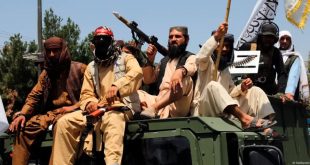By Dr. Matin Royeen
Dr. Daniel Goleman is a renowned psychologist who has written extensively on creativity, transparency, meditation and social and emotional learning. His book on Emotional Intelligence published in 1995 has sold more than five million copies and translated into 40 languages. Emphasizing the direct relationship between effective leadership and emotional intelligence, Dr. Goleman states that leaders with emotional intelligence are not only aware of their own emotions, but also are aware of other people’s emotions. Such empathy can create stronger bonds and improve relationships among people.
I believe the concepts of leadership and emotional intelligence are very relevant to the present conditions in Afghanistan for the following reasons. First, the Afghan people have witnessed violence and trauma for over four decades. Leaders with emotional intelligence will be able to provide the necessary psychological support/relief for ordinary people through empathy and by creating mutual understanding. Second, the Afghan leaders and influential personalities are polarized along political, ethnic and personal interests which pose a threat to national unity. Developing emotional awareness and channeling emotions in the proper direction using emotional management techniques will build bridges of understanding among leaders. Third, practicing emotional intelligence in the context of the national interests of Afghanistan will create a unity of purpose among leaders with a unifying impact on their Afghan followers. Let us study the four dimensions of emotional intelligence and how the Afghan leaders can benefit from each competency.
1. Self-Awareness: It is important for each national leader to be aware of own feelings and emotions, especially during stress and crisis. Emotional self assessment will help Afghan leaders to learn about strengths, weaknesses and develop some strategies towards emotional maturity/stability during communication and interaction. The overall impact of the Afghan leaders on the emotional well being of the ordinary people is positive when leaders are calm and display strategic patience. On the contrary, unnecessary displays of emotional outbursts by leaders have a negative impact on the psyche of the people.
2. Self-Management: We all know that leaders are human beings with feelings and emotions. Leaders are generally held to a higher state of emotional maturity by keeping disruptive emotions and impulses under control. Unfortunately, the cruelty of violence, terrorism and bi-polarity of peace and war in Afghanistan has caused trauma, stress and uncertainty among
Afghans. It is upon all national leaders to show adaptability in overcoming national threats and obstacles, use initiative to seize opportunities for self improvement and act with dignity, integrity and character with each other during trying times. This builds confidence and trust among Afghans.
3. Social awareness: Effective leadership requires social intelligence and the ability of the leaders to understand each other’s perspectives and take interest in understanding the needs, concerns and aspirations of Afghan citizens. An objective and unbiased understanding of the dynamics of social relationships among people and awareness of the political climate around the country is critical for strategic planning. Social awareness requires good judgement.
4. Relationship Management. Diversity is the spice of life. Afghanistan is a multicultural society with ethnic diversity. Understanding, appreciating and developing a common vision among leaders and the public is important for the Afghan national identity and unity. The Afghan leaders can serve as catalysts for positive change, build consensus by solving disagreements and empower others through training and capacity building. Cultivating and maintaining a web of relationships and promoting teamwork and collaboration are important ingredients of relationship building and management.
Emotional Intelligence Leadership Styles: Dr. Goleman and colleagues have discussed six emotional leadership styles in their book “Primal Leadership”. These styles have different emotional impacts on people and should be used in various situations. Let us discuss each style in detail.
- Visionary (Authoritative) Leadership: It moves people towards shared dreams and common goals in a positive manner. This style is helpful when a new direction is needed and when changes require a new vision. A good example of this style of leadership is the formation of the new Supreme State Council that can play an important role towards a new vision of peace and other important national security issues through consensus building among Afghan leaders. In order for this important initiative to succeed, a few important steps are key. First, Those national leaders invited to become part of this group should develop a common understanding and agreement about the goals, structure and decision making authority of this important body. If this is going to be only an advisory group without any decision making authority, it will fail from the very beginning. Since there is a crisis of confidence and trust among Afghan leaders, this group must be convinced that their participation will be substantive, not symbolic. . Second, assuming the members of this national council have the authority to make decisions about the future of a peaceful Afghanistan, this builds confidence, consensus and a vision based on dreams and aspirations of the Afghan people towards peace. Third, display of such important political solidarity among leaders will move the public towards national unity which is badly needed. The authoritative style of leadership should not be confused with authoritarian style of leadership where the decisions are made by the leader alone.
- Coaching Leadership: This style of leadership connects the leaders goals with the people in the governmental organizations. Concentrating on team building, skill development and motivating people in achieving long term goals constitute important elements of this style of leadership. Consequently, this coaching or mentoring relationship helps individuals become independent and contribute to the overall growth of the organizations within the government. For example, inserting senior advisors in different ministries to serve as mentors for some high level officials can be very helpful. These mentors are highly technical people (not political to fill a position through nepotism) who will help officials fulfill missions successfully in the context of the articulated vision and national goals.
- Affiliative Leadership: This is one of the most needed leadership skills in Afghanistan. This type of leadership creates harmony by connecting people in the government with each other and with ordinary people in the country. Due to different reasons,, the leaders of Afghanistan are very fragmented and pursue individual agendas which are very harmful to the national interests of the Islamic Republic of Afghanistan. Leaders with affiliative skills are needed to rebuild confidence, trust and make peace with each other before they embark on this noble mission of peace-making with the Taliban. This is easy to implement through highly developed specialists and third party professional mediators to manage the interpersonal problems and manage the conflicts among the most powerful leaders in the country. “If there is a will, there is a way”. If leaders cannot resolve their differences, how can they expect the public to live in peace and harmony with each other?
- Democratic Leadership: This type of leadership seeks and includes others input into decision making in the government. Speaking about democratic values and principles and not applying them in practice is a problem in Afghanistan. Officials in the government with responsibilities should have the opportunity to exercise their authority without any censor by the top leadership. In the absence of authority to pursue responsibilities, the leaders’ confidence, commitment and competence are compromised. The top leadership in the government should have trust in the abilities of their leadership team to pursue common goals. One of the great contributions of the international community in Afghanistan has been building the pillars of democratic institutions that are still in the developmental stage. It is important to strengthen this delicate foundation by exercising the democratic values and principles in action.
- Pacesetting Leadership: Focusing on performance and meeting goals are the main ideas behind this style of leadership. Often, the top leadership becomes involved in order to ensure that goals are met. It is a good idea to set and expect high standards of performance from team members, providing the necessary mentoring systems are implemented in support of achieving those goals. This must be executed well in order to get high quality results from a competent team. Developing competency takes time and educational programs in order to increase knowledge, improve skills and replace old habits with new attitudes.
- Commanding (Coercive) Leadership: This is the application of autocratic style by exerting command and control. Overall, this kind of leadership style can have a very negative impact on the morale of the people. Instead of promoting efficiency, this style creates dysfunction and alienation in the government/organization. The proper utilization of a commanding leadership style is during emergencies or during crises.
Conclusion: Leadership is both an art and a science. Learning the skills of emotional leadership are needed in Afghanistan. The country has been at war for over four decades with tremendous psychological and emotional scars on people. Leaders at every level of the Afghan society have power and influence among their followers. How leaders manage and display their emotional intelligence have a tremendous psychological impact on the followers. Leaders with good awareness of their own emotions and a realistic understanding of the followers’ sentiments and emotions can have a positive impact by displaying sensitivity, calm demeanor and a strong will power during difficult times. On the contrary, if leaders are unable to check and manage their emotions during communication/interaction with the public, it will have a very detrimental effect on the feelings and perceptions of ordinary people. Losing faith and confidence in the leaders’ disruptive and erratic behavior is degrading. Displaying civility and exercising emotional intelligence during difficult times represents the hallmark of character of a nation.
National leaders are the face of the nation with two choices. They can either adopt a style of Resonance Leadership by which they can shine through the prism of morality, integrity and service mobilizing the public in the promiseland. Or, they can continue their politics of Dissonance Leadership by planting the seeds of divide and conquer. May I remind the Afghan leaders of the important saying, “Those who plant the seeds, will plow their own harvest”.
Dr. Matin Royeen Ph.D. is an Afghan-American educator. He can be reached at: [email protected]
 Afghanistan Times Latest News and Analysis from Afghanistan and the Region
Afghanistan Times Latest News and Analysis from Afghanistan and the Region




